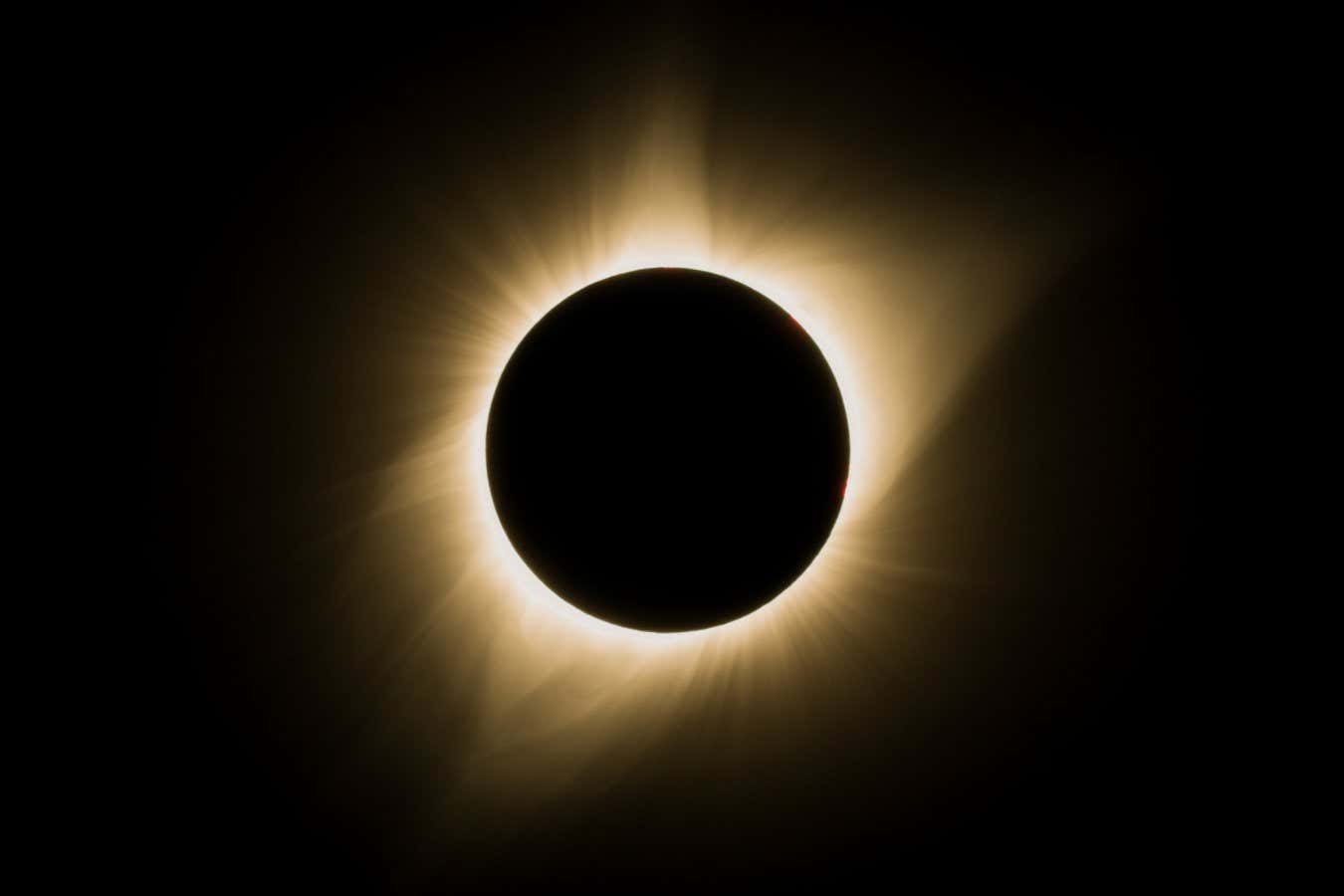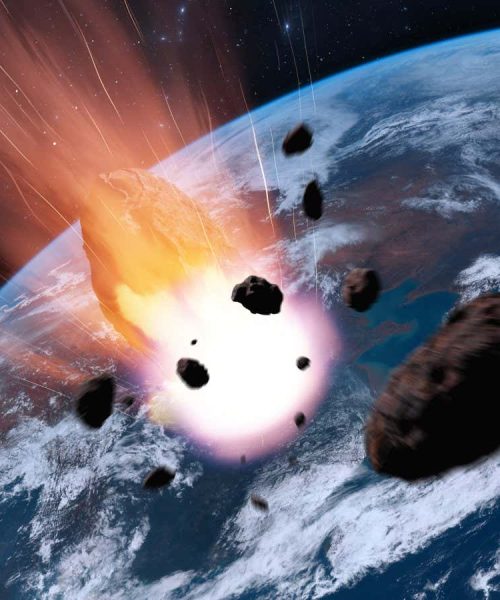
Dead Planets Society is a podcast that takes outlandish ideas about how to tinker with the cosmos – from snapping the moon in half to causing a gravitational wave apocalypse – and subjects them to the laws of physics to see how they fare. Listen on Apple, Spotify or on our podcast page.
A total solar eclipse is one of the most incredible cosmic events we can witness from Earth – but they can also be inconvenient. Any particular location only experiences a solar eclipse about once every few hundred years or so, and travelling to the path of totality isn’t always feasible.
In this episode of Dead Planets Society, hosts Leah Crane and Chelsea Whyte are joined by astronomer Bruce Macintosh at the University of California, Santa Cruz, in their attempts to fix this problem and conjure up a total solar eclipse that is accessible to all.
Advertisement
Natural solar eclipses occur when the moon passes in front of the sun, casting a shadow on Earth’s surface. To create an artificial eclipse, our hosts will have to put something else between Earth and the sun. A relatively small sunshade could work, but it would have to be fairly close to Earth’s surface to block out the entire sun – and to stay that close, it would need to orbit at extraordinary speeds. The eclipse from such a small, fast-moving shade would only last a few seconds.
Instead, our hosts are taking on the challenge of parking something much larger in front of the sun to block it. A planet might work, but none in our solar system are quite the correct size – plus it would be difficult to move a whole world, and the consequences for Earth might be dire. In fact, changing how much sunlight reaches the ground at all could be a problem…
The solution may be a series of small panels, blasted into space individually and flown in formation to block the sun. There would need to be a whole lot of them, but changing their orientation in flight could provide solar eclipses on demand – without necessarily destroying all life on Earth.
Topics:





